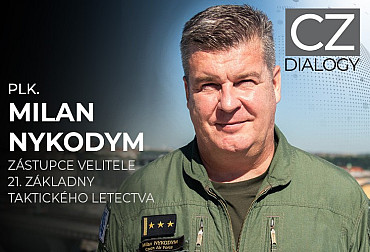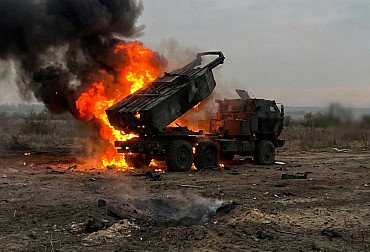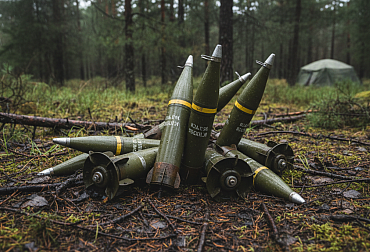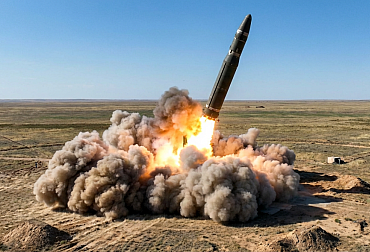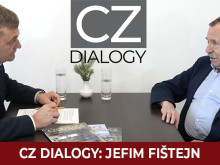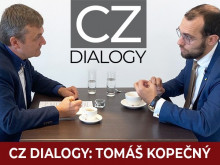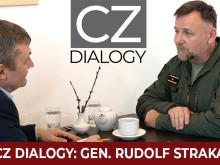General Mikula: Arms fairs are key for monitoring trends and debating with manufacturers
Participation in arms fairs is not only a matter of prestige for soldiers, but above all a practical tool for keeping pace with the development of modern technologies, as confirmed by Brigadier General Zdeněk Mikula, commander of the 7th Mechanized Brigade (7. mb), at the recent IDET 2025 fair. In connection with the introduction of CV90 tracked IFVs into the 7th mb's arsenal and plans to purchase new Leopard 2A8 battle tanks, we also spoke with Col. Miroslav Vybíhal, Director of the Ground Forces Development Department of the Ministry of Defence, and Lt. Col. Miroslav Maixner from the Mechanized Forces Division of the same department. Education is also part of the development of the army's capabilities, so we asked Brigadier General Jan Farlík, Rector of the University of Defence (UNOB), about the goals of military education and plans for the future.
Video: Interviews with Brigadier General Zdeněk Mikula, Colonel Miroslav Vybíhal, Lieutenant Colonel Miroslav Maixner, and Brigadier General Jan Farlík / CZ DEFENCE
"We gain two essential things here. On the one hand, we can physically inspect the technology, verify its parameters, and see the latest innovations and cutting-edge developments in the field. At the same time, we have the opportunity to talk to the manufacturers in person, which is rare in normal operations," says General Mikula in an interview. According to him, the importance of trade fairs has increased even more in the context of the war in Ukraine, where the combat environment is changing rapidly and soldiers must adapt their training and technical requirements accordingly. "It doesn't end with the purchase of a vehicle. We monitor what the enemy is doing, how they are responding to developments – and we have to take that into account too," warns the commander of our "heavy brigade," referring to the threats posed by drones and modern anti-tank weapons. Although the war in Ukraine at first glance resembles the trench warfare of the last century, General Mikula points out that it is part of a broader trend toward protracted conflicts. "Similar scenarios are being rehearsed in the Indo-Pacific. Russia's strategy is deliberately moving toward this type of conflict," he notes.
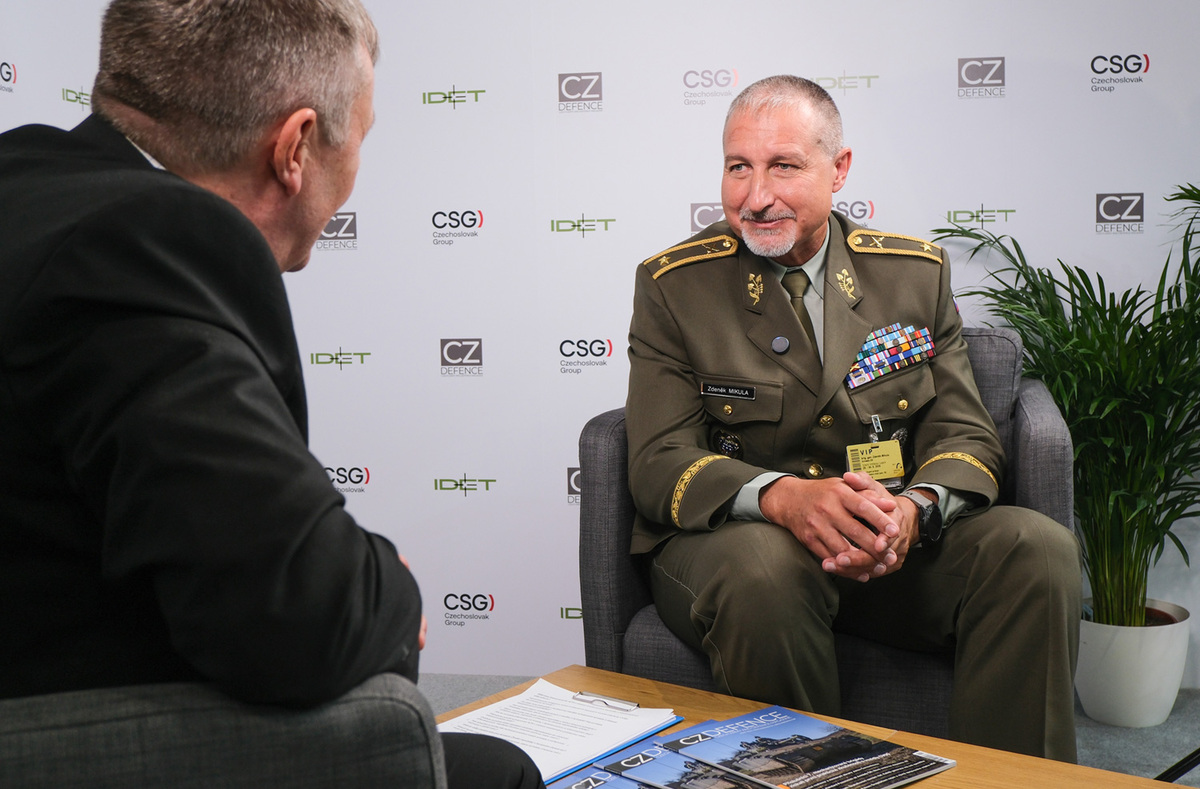
The introduction of new CV90 tracked combat vehicles will be a major event for our 7th Mechanized Brigade. The first armored vehicles are expected to arrive as early as next year. "Our soldiers have already had the opportunity to train with the Dutch 43rd Mechanized Brigade, which uses older versions of the CV90. This experience is very valuable to us – both for preparation and to give us an idea of what to expect," General Mikula reveals in an interview.
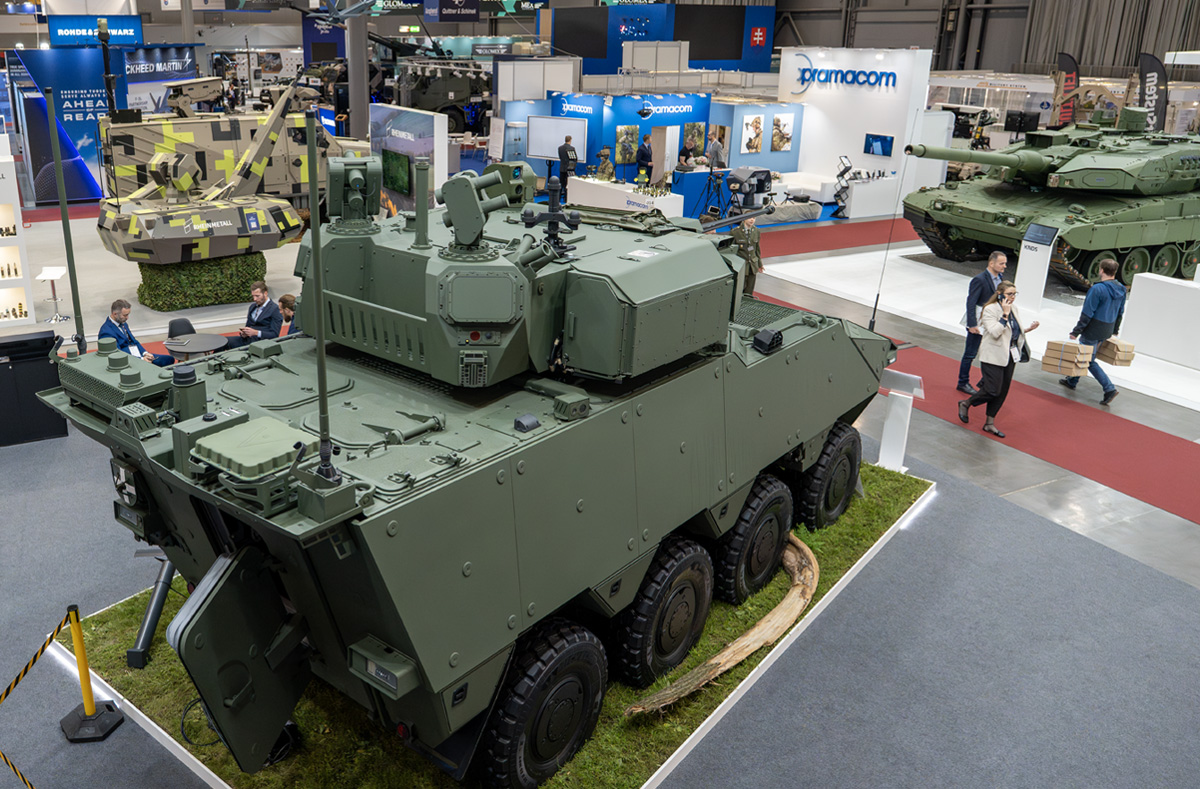
Colonel Vybíhal: New heavy equipment brings higher demands, but also essential capabilities
Modern tanks and other heavy combat equipment represent a significant qualitative leap forward, but at the same time they place increased demands on logistics, servicing, and training. "Fully digitized technology brings more efficient capabilities, but at the same time it is more complex to maintain and operate," says our next guest, Colonel Miroslav Vybíhal, Director of the Land Forces Development Department at the Ministry of Defence. At the IDET trade fair, which he visits regularly, Colonel Vybíhal monitors not only technological trends but also feedback between soldiers and industry. "It is absolutely essential for the defence industry to know how soldiers think about combat. And for us, it is important to see where development is heading," emphasizes the director of the Ground Forces Development Department of the Czech Army.
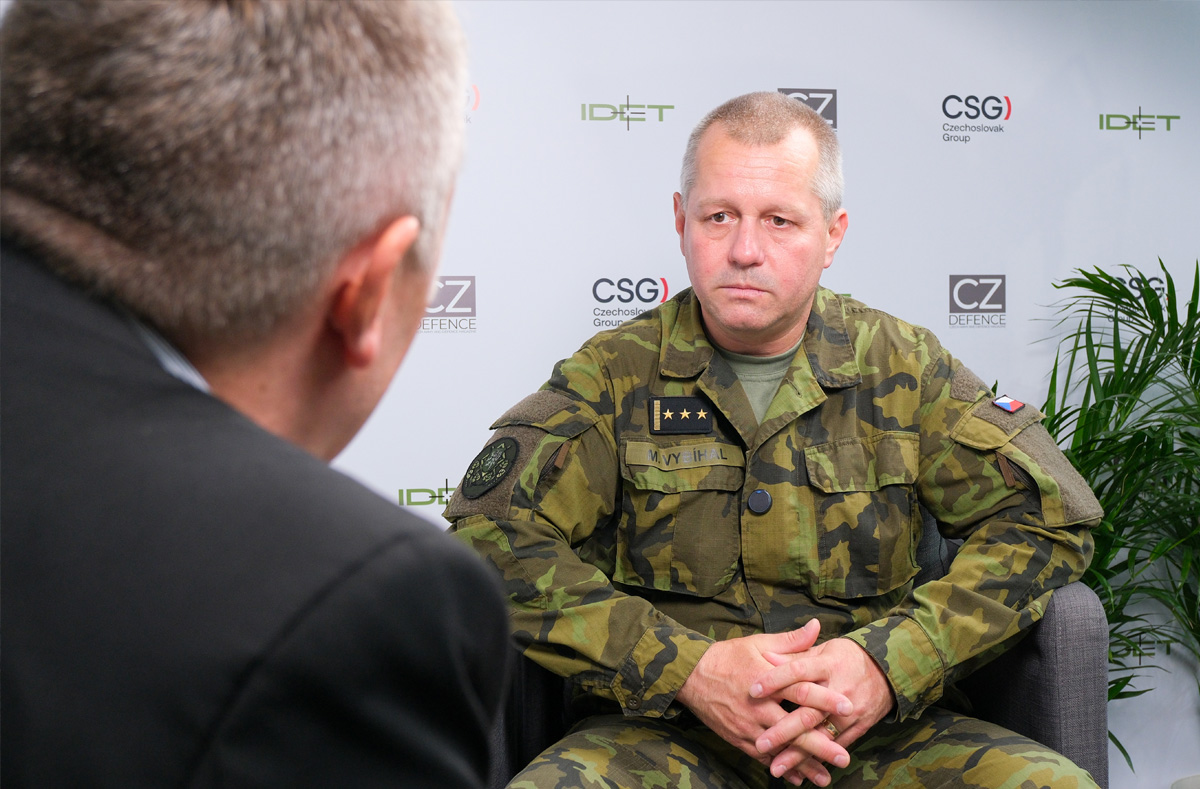
Changes in the nature of conflicts – such as in Ukraine – also affect heavy units. For example, according to Col. Vybíhal, unmanned aerial vehicles and their use in combat are fundamentally changing the rules of the game. "Training and technology must adapt to new threats, including drones and systems for their elimination," says the director of the Czech Army's Ground Forces Development Department, who adds that the army cannot strive for everything. "We have to distinguish between what we would like to have and what we really need to have. Every new capability must be supported not only by acquisition but also by funding for long-term operation." Colonel Vybíhal also considers cooperation with allies to be key. In his view, sharing experience across NATO armies is essential for effective functioning within the Alliance. "It's not an advantage, it's a necessity. Discussions take place at both the tactical and strategic levels, and without them, it's impossible," Colonel Vybíhal concludes in the interview.
Lt. Col. Maixner: CV90 represents a two-generation leap forward in weaponry and soldier protection
According to Lieutenant Colonel Miroslav Maixner, the introduction of new CV90 tracked combat vehicles into the Czech Army's arsenal represents not only a technological but also a philosophical shift in the approach to the protection and capabilities of soldiers on the battlefield. "Compared to the BVP-2, which I personally served on, it's at least a two-generation difference. The CV90 moves us to the level of a modern, digitized battlefield, where the commander has much more information and can respond more quickly and effectively," says Maixner, who served in the 7th Mechanized Brigade for many years. According to him, the key advantages are the fire control system and crew protection. "Unlike the BVP-2, where a hit was often fatal, the CV90 is designed to give the crew a chance to survive.
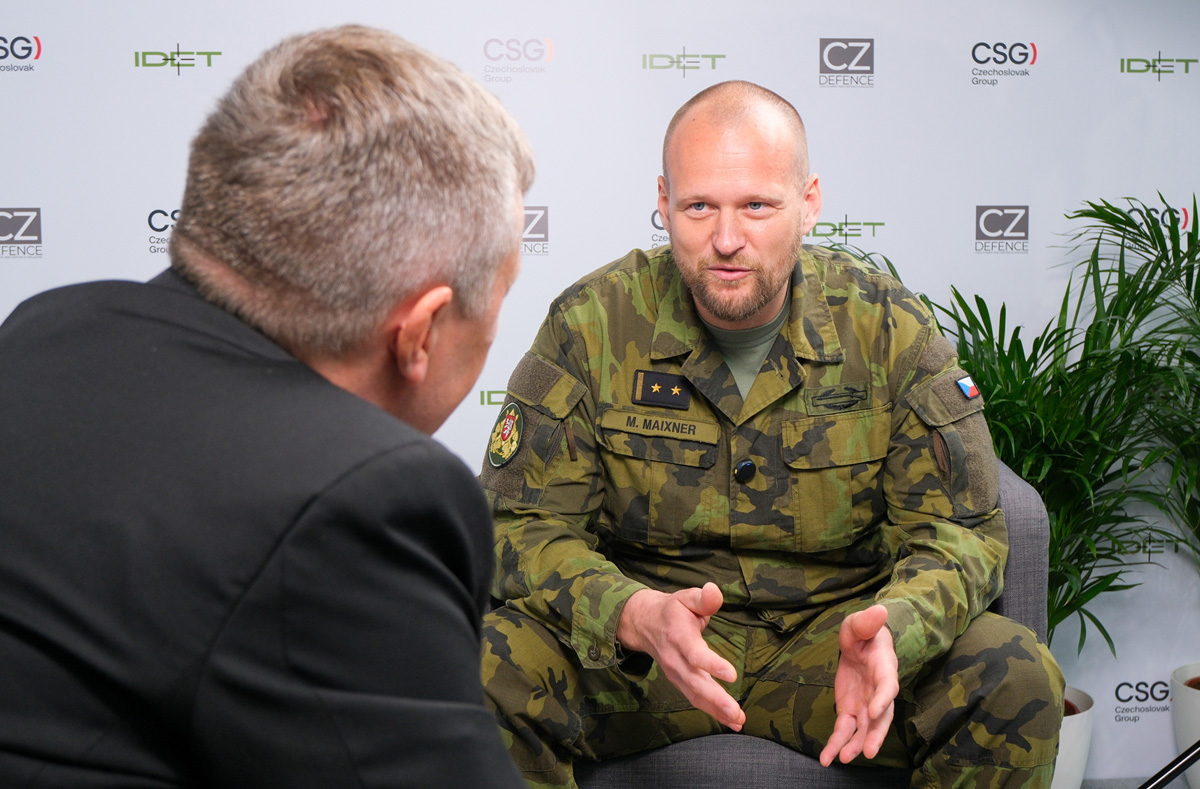
This is confirmed by experience from the Ukrainian battlefield. During joint exercises with Dutch colleagues, Lt. Col. Maixner had the opportunity to familiarize himself with the CV90. "The controls are much simpler than on older equipment, and the vehicle is designed to assist the driver and not punish him for every mistake." According to him, soldier safety does not end with the vehicle's armor. "It's a whole system – from ballistic protection for individuals to vehicles to active and deceptive measures. The best security is to convince the enemy that you are somewhere else than they think," adds Lt. Col. Maixner with a smile. He believes that the introduction of the CV90 is just the beginning, as the army is changing and the emphasis on soldier protection is stronger than ever before.
UNOB Rector Jan Farlík: We are combining skills so that the army has drone and technology leaders
The University of Defence is expanding its capabilities in the field of unmanned systems, as confirmed in an interview by the university's rector, Brigadier General Jan Farlík. In cooperation with the state-owned company LOM PRAHA, a strong partnership is being formed focused on training drone operators and developing new technologies. "This is not a completely new field, but an expansion of existing capacities. We have high-quality researchers, pilots, and designers – we will combine them with LOM's capacities and take training and development to a higher level," says General Farlík. The new "Air Traffic Control" study program aims to prepare not only air traffic controllers and pilots, but also professional operators of medium and large drones – not just the small machines we know from the media, but fully-fledged vehicles capable of operating in military areas. "Every modern army strives to have its own capabilities in this area – human, technological, and organizational," says the UNOB rector.
In addition to drone specialization, the University of Defence also focuses on other key areas, such as cybernetics, artificial intelligence, and quantum technologies. "We want to be part of a large national consortium that will connect defence, industry, and academia. We are already cooperating with the Czech Technical University, Brno University of Technology, and VŠB Ostrava," says Brigadier General Farlík.
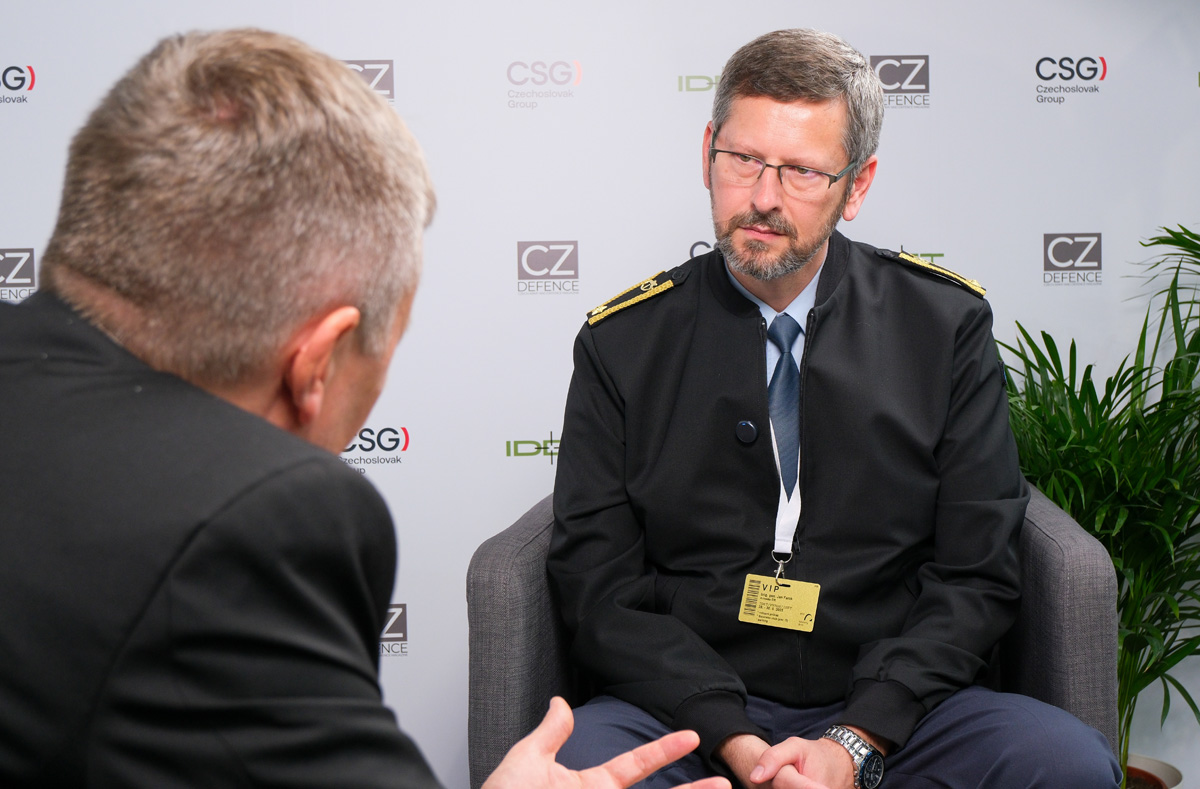
The university is also responding to growing needs in the areas of crisis management and soft skills. "The approach to threat management has changed, the life cycle of technology is changing, the world is changing. We have to adapt our education to this," warns the UNOB rector. And what makes studying at the University of Defence attractive? According to Farlík, it is a unique combination of cutting-edge expertise, modern technologies, scientific background, and the opportunity to serve. "Our students know that what they are doing makes sense—and that it will be needed not only today, but also ten years from now."











